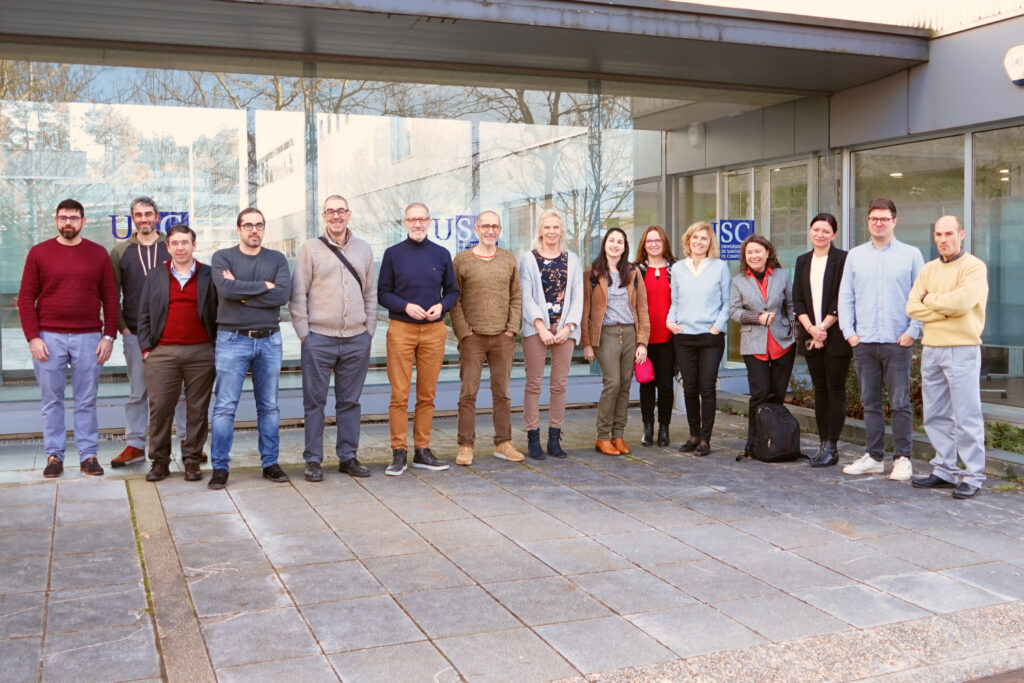Humans and machines will join forces to curb one of today’s biggest threats to democracy: fake news, hate speech and misinformation will face a new obstacle in the European consortium ‘HYBRIDS’: an international initiative funded with over 2.9 million euros by EU’s Horizon Europe research and innovation programme Marie Sklodowska-Curie Doctoral Networks, and UKRI’s Horizon Europe funding guarantee
The spread of rumours and fake news, hate speech against vulnerable minorities and harassment through social media have become one of the main threats to modern democracies.
The parliaments and governments of different nations are becoming aware of the need for a global strategy against disinformation, assuming that the stability of democratic societies also depends on citizens having access to verifiable information, thus being free to construct their own opinions based on objective data whose veracity can be demonstrated.
Although there have been significant advances in the automatic detection of misinformation in recent years, it remains an under-studied field, as it is an extremely complex task that requires deep semantic knowledge and different inference and reasoning mechanisms based on natural language.
In this context, the European Union (EU) and UK Research and Innovation (UKRI) have just given its support to a new transnational research project whose scientific aim will be to design and develop new automatic tools to counter the threat of misinformation, based on natural language processing (NLP) and Artificial Intelligence (AI).
Throughout the HYBRIDS initiative (Hybrid Intelligence to monitor, promote and analyse transformations in good democracy practices) different Deep Learning techniques will be developed on the basis of an exhaustive analysis of public discourse about crucial global issues, such as health, climate crisis, European scepticism or immigration, which will take into account both traditional media and content published through social networks.
‘Hybrid’ intelligence
From its very initial conception, HYBRIDS has assumed the need for a multidisciplinary research team, capable of transferring the knowledge acquired in the human and social sciences to the technological tools of Natural Language Processing (NLP) and Deep Learning (DL) algorithms. Pablo Gamallo, an expert in computational linguistics heading the project from the leading institution in Spain (CiTIUS – Research Centre on Intelligent Technologies), states that “the ultimate goal is to generate new neuro-symbolic interpretation systems, something that we know as ‘hybrid intelligence”. The researcher sums up the essence of the project: “the idea of hybrid intelligence consists of combining the high computational capacities of recent neural algorithms with symbolic representations that model human knowledge, thus paving the way to overcome the shortcomings of current artificial intelligence methods”, he explains.
However, despite these advantages, very little research has been published to date in the field of hybrid systems; mostly due to the difficulty of finding highly qualified personnel in these disciplines, traditionally as distant as computer engineering, social sciences, or linguistics. The launch of HYBRIDS (a Marie Skłodowska-Curie Doctoral Network funded by the Horizon Europe programme and UKRI) will also contribute to the training of such profiles in hybrid methodologies, who will provide their expertise in this and other social studies with a high potential impact on the sustainability of good democratic practices in Europe.
Academia and industry hand-in-hand in the face of disinformation

HYBRIDS is the result of an international consortium led from Santiago de Compostela (Spain) by the Research Centre on Intelligent Technologies (CiTIUS), and it involves a total of14 members (8 beneficiaries – 6 partners) from 7 European countries: France, Germany, Italy, Portugal, Spain, the Netherlands and the United Kingdom. Among the institutions are 6 universities (Queen Mary University of London, Radboud Universiteit, Universidade da Coruña, Universidade de Santiago de Compostela, Université Caen Normandie and Universidade de Evora); 3 R&D centres (Consejo Superior de Investigaciones Científicas, Fondazione Bruno Kessler, Leibniz-Institut für Sozialwissenschaften); 2 non-profit foundations (Fondazione Openpolis ETS, Fundación Empresa Universidad Gallega) and 3 private companies (Factoria Software e Multimedia, Industrieanlagen Betriebsgesellschaft MBH and Newtral Media Audiovisual). Following the official start of the project, which began on 1 January 2023, members from the different institutions have met for the first time today in Santiago de Compostela (Spain), along the kick-off meeting of the HYBRIDS initiative.
